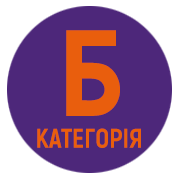PHYSICAL CULTURE AND SPORT AS A MEANS OF PREVENTING PREMATURE AGING
DOI:
https://doi.org/10.32782/2522-1795.2021.9.24Keywords:
physical culture, sports, aging, man, physical activityAbstract
The article examines the influence of physical culture and sports as the main means of preventing premature aging. According to the World Health Organization, in the late 1960s, coronary heart disease mortality increased by 60% in 23 economically developed countries in just one decade. As a rule, age-related diseases are the result of insufficient motor activity and unbalanced diet, environment. Health does not simply mean the absence of disease: it is something positive, it is a cheerful and willing fulfillment of the responsibilities that life imposes on a person. Science has shown that human health depends only 10-15% on the activities of doctors, drugs, 15-20% on genetic factors, 20-25% – on the environment and 50-55% on conditions and lifestyle. Doctors of all times unanimously warn that insufficient physical activity undermines health, ages a person, and brings him closer to death. At present, the rational organization of physical activity has become especially relevant due to the imbalance between food intake, exercise and rest. There was a violation of one of the basic principles of world creation – the principle of equilibrium. An analysis of the physical condition of the elderly. About 80% of the elderly and senile suffer from multiple chronic pathology. Thus, in the structure of morbidity of the elderly the main place is occupied by coronary heart disease, hypertension, diabetes, respiratory diseases, diseases of the musculoskeletal system. The aging of the majority of the population of Ukraine is a pathological, accelerated variant. This is largely due to diseases that most often cause premature death or disability (atherosclerosis, coronary heart disease, malignancies, diabetes, hypertension, obesity, osteoporosis, parkinsonism, etc.). Accelerated aging is due to the combined effect on the body of environmental factors (environmental, socio-economic, irrational lifestyle, stress, etc.) and internal factors (actually age-related changes in the body).
References
Бака Р. Региональные особенности формирования физической культуры : монография. Санкт-Петербург : НП «Стратегия будущего», 2008. 140 с.
Булатова М. Фитнес и двигательная активность: проблемы и пути решения. Теорія і методика фізичного виховання і спорту. 2007. № 1.
Валецька Р.О. Основи валеології : підручник. Львів : Волинська книга, 2007. 348 с.
Державна програма розвитку фізичної культури. Наука в олимпийском спорте. 2007. № 1. С. 122–130.
Дутчак М.В. Спорт для всіх у світовому контексті. Київ : Олімпійська література, 2007. 111 с.
Компанієць Ю.А. Спеціальна фізична підготовка : навч. посіб. Луганськ : РВВ ЛАВС, 2003. 558 с.
Круцевич Т.Ю. Теория и методика физического воспитания. Методика физического воспитания различных групп населения. Київ : Олимпийская литература, 2003. 391 с.
Круцевич Т.Ю. Теорія і методика фізичного виховання. Київ : Олімпійська література, 2008. Т. 1. 424 с.
Круцевич Т.Ю., Безверхня Г.В. Рекреація у фізичній культурі різних груп населення. Київ : Олімп. л-ра, 2010. 248 с.
Сіренко Р.Р., Фалес Й.Г., Огерчук О.Ф. Функціональні блоки, що гальмують розвиток фізичної працездатності. Адаптаційні можливості дітей та молоді : V Міжнар. наук.-прак. конф. Одеса : ПДПУ ім. К.Д. Ушинського, 2004. С. 202–204.
Downloads
Published
How to Cite
Issue
Section
License

This work is licensed under a Creative Commons Attribution-NonCommercial-NoDerivatives 4.0 International License.











